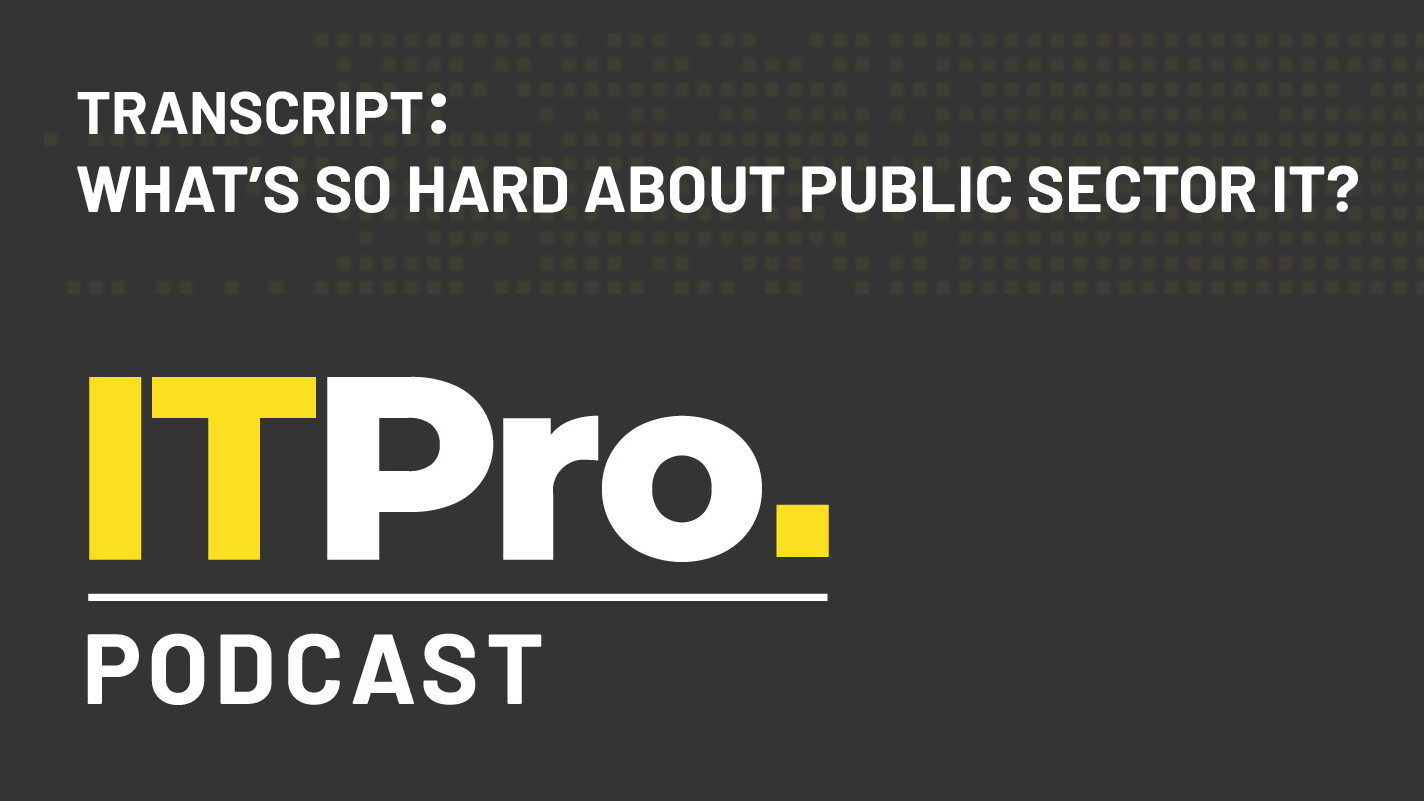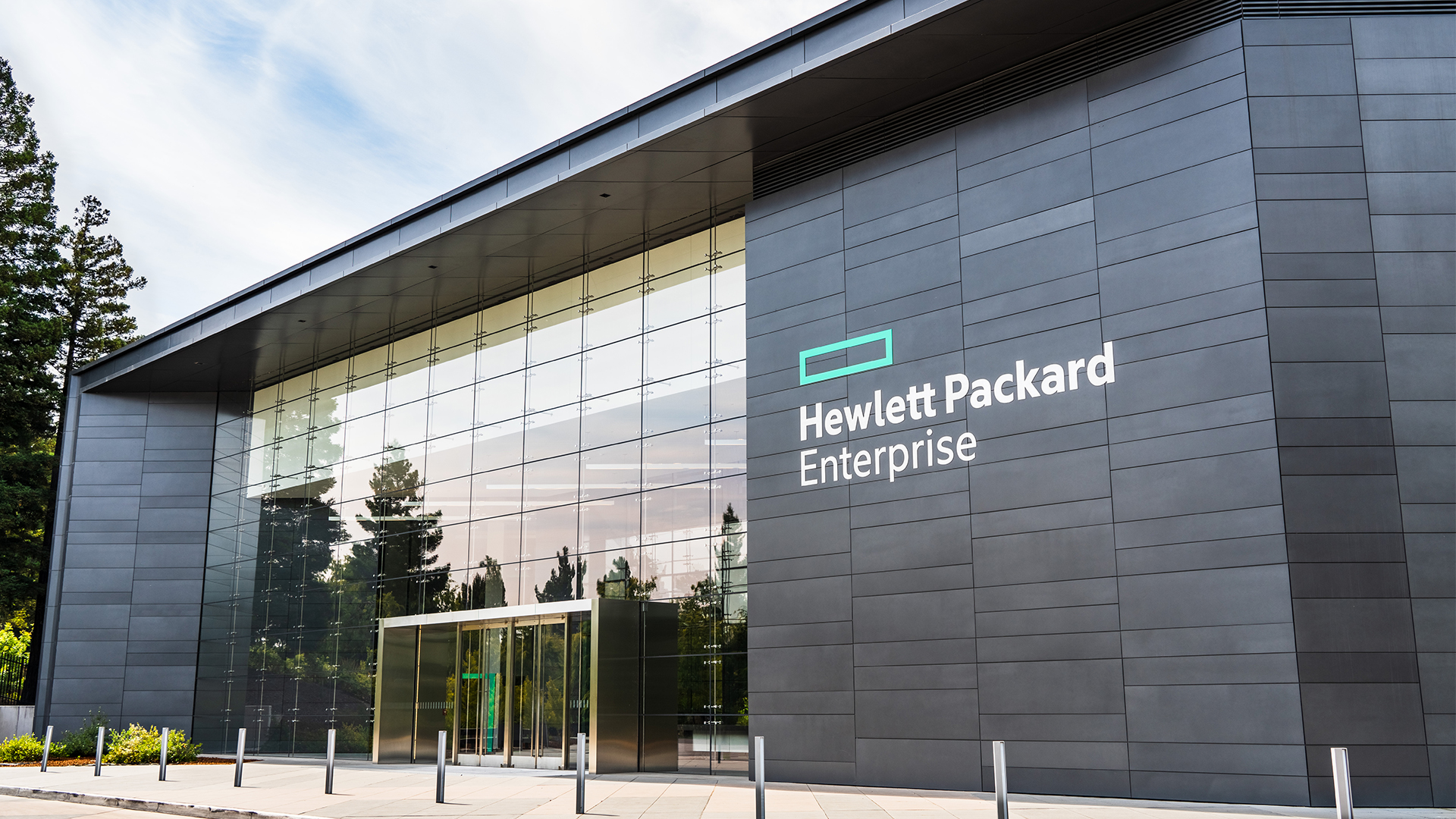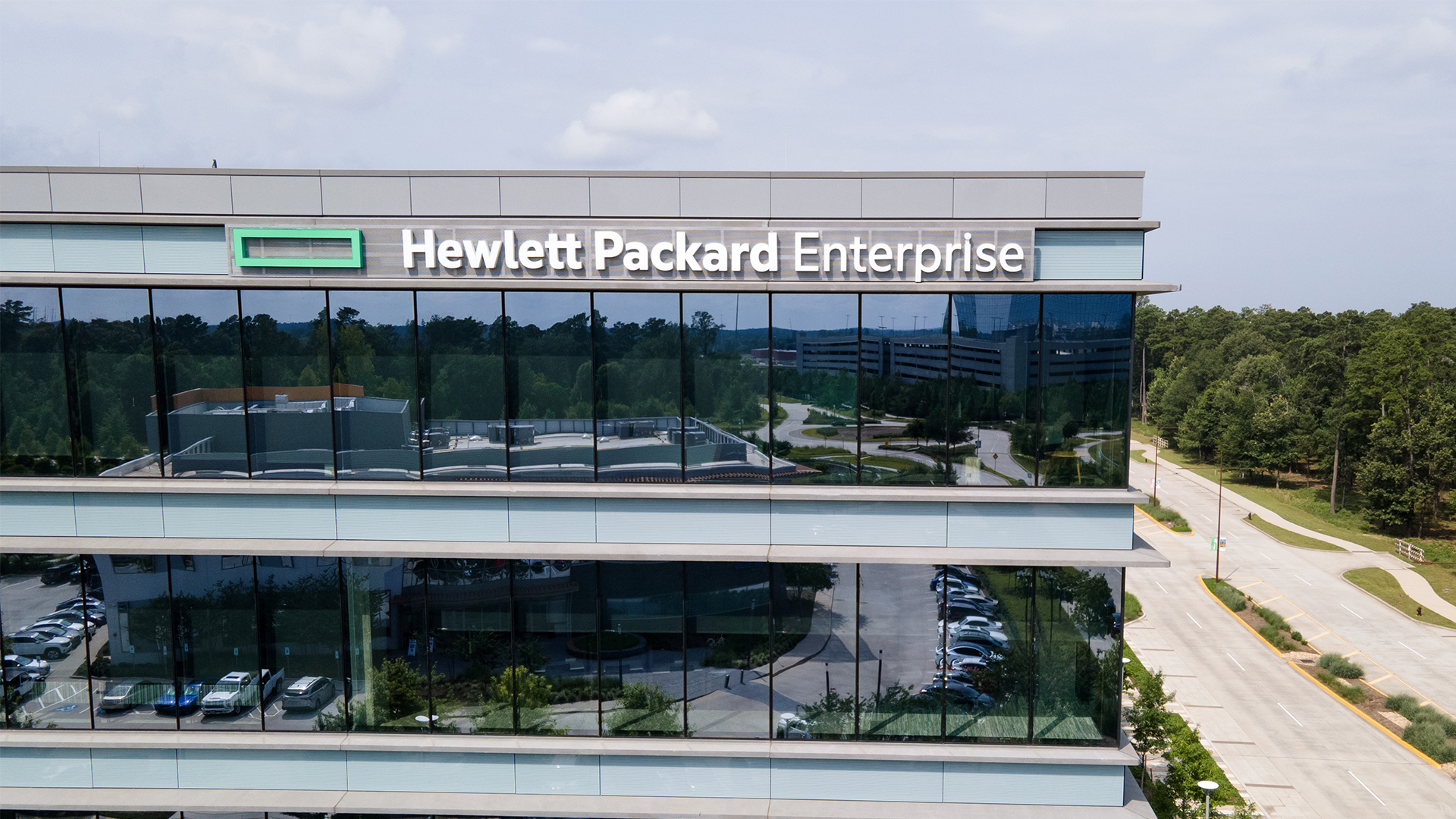
This automatically-generated transcript is taken from the IT Pro Podcast episode ‘What’s so hard about public sector IT?’. To listen to the full episode, click here. We apologise for any errors.
Adam Shepherd
Hi, I'm Adam Shepherd.
Keumars Afifi-Sabet
And I'm Keumars Afifi-Sabet,
Adam
And you're listening to the IT Pro Podcast where this week we're investigating the unfortunate reputation of public sector IT. It's widely believed that public sector organisations trail behind commercial companies when it comes to the effective deployment of technology, stuck with creaky systems and inefficient processes that can sometimes look positively ancient when compared to those used in the private sector.
Keumars
It's an understandable reputation given the laundry list of mishandled and scrapped IT projects over the years left behind by organisations like the NHS and various government departments. But is public sector IT inherently more difficult to manage than other areas, and how can public sector IT managers circumvent some of these challenges?
Adam
We're joined today by HPE's Senior Vice President and UK MD Marc Waters to discuss the state of technology in the UK public sector, and how it might be brought up to speed. Marc, welcome to the show.
Marc Waters
Well, good morning. Thank you. Good to see you both. And great to be here.
Sign up today and you will receive a free copy of our Future Focus 2025 report - the leading guidance on AI, cybersecurity and other IT challenges as per 700+ senior executives
Adam
So Marc, IT in the public sector has a reputation for being stuck behind the curve, let's say. Do you think this is a broadly fair assessment?
Marc
Well, I would say there's a lot of positivity within UK public sector on technology. There are lots of great technologists. And there are lots of things to be to be cheered and to be recognised. I do think we have made good progress on Citizen Services, digital services for our citizens, we've done that with a reasonable degree of speed. And we've seen a real open mindedness to change to embrace new technologies. So so there's lots to be celebrated. But no, you're you're correct. I mean, I think, if you look at the National Audit Office, they recently reported on 25 years of technology strategy and failure with digital change, citing a consistent pattern of underperformance. So there's definitely something in there. By mitigation, I would say that, quite often the programmes we talk about have a degree of visibility, that the private sector is not subjected to, and a degree of scale and complexity, and also compliance oversight that adds just just additional hurdles towards success.
Adam
I think that's a really good point to bring up. If you're looking at, for example, rolling out Office 365 across a business, if that project goes wrong, then you know, it's not the end of the world. If you're a government department looking at rolling out, you know, digital passports, for example, if that goes wrong, that has much more severe consequences. So the checks and balances need to be, you know, equivalently, substantial.
Marc
Yes, checks and balances are very important as a as a taxpayer, as an advocate of UK PLC, we expect and we want those checks and balances, but it's often the unintended consequences that result that make life very difficult for many very talented technologists within UK public sector. Again, coming back to the NAO report, they talk a lot about being driven to decide short term technical solutions without full consideration of the long term impact. And they also talk about the gap in skills when you get into full deployment or implementation, and those two things often leading to a disparity between the aspiration, which was good, right, well thought out - and the actual outcome, which which can often come short, leading to some of the perceptions, fair or unfair, that you you referenced at the top of this podcast.
Keumars
My question is a little bit around the idea of perception; for all the bad that we hear about, I mean, when it goes wrong, it's, it's catastrophically goes wrong. How much of this is about what we see? I mean, I'm sure there's lots of good going on that possibly outweighs the bad. And how much of it is about, I guess systemic cultural issues that do result in some of these failures that we do see?
Marc
Ah, these things are always a combination of factors and an organization's culture, be that public or private sector, will have an impact in how they deploy significant projects. Probably two areas I'd I'd pull out that stand out for me as a technologist, and again, as someone who wants to see the UK thrive, is probably a lack of appreciation or realism around the impact of existing technical debt when future projects are being considered, particularly in the context of a public cloud first policy in government leading to difficult application choices around retain or re-host or or actually are we just going to try and rearchitect and rebuild everything somewhere else? And what's the implication of making those choices based on a narrow policy objective, maybe, rather than a more longer term or outcome-based set of criteria? I mean, again, in terms of success or failure, and, you know, I'm not sure we are totally the, the right jury to pass judgement on it. I think we've all got got preset perspectives. But in if you look at the recent report from IDC, I think 70% of government applications are sat outside of the public cloud, after eight years of a public cloud first policy that's garnered significant huge investment and increasing government operational costs. So you would kind of question the success of that as a strategy. In that context, you would question the implications of that to taxpayers? And you I would push to say, when is it time to really rethink those policy objectives to take account for technical debt and just approach things not from a solution first direction, but from an outcome based direction?
Adam
And that push towards outcome driven IT is something that we've spoken about a fair amount in the past. So we've spoken a lot about the strategy side of things. But can you tell us a little bit about the appetite for IT innovation that you're seeing within public sector?
Marc
I think there is a great appetite for innovation, I meet some incredibly talented technologists, there is a degree of ambition. And I mean, I know you watched our 'Unconsciously Hybrid' documentary; you can see there from, from people heavily involved in the public sector, there is also a great deal of frustration on constraints that people feel are placed upon them. The the challenge in order to be able to deliver on the the innovation aspiration. So I don't think it's a lack of aspiration. I think it's more down to execution. And again, you know, policy frameworks, with all good intentions take time to catch up or are often dated by the time they're implemented. And in an area such as technology, which moves at an incredible pace, they can quickly become well intentioned, constraining factors, as opposed to catalysts to to innovation. And coming back to Unconsciously Hybrid, this is quite often what we see now, with 70% of apps sent outside of the public cloud. But with a big public cloud push and an increase in investment, significant investment, you see across government, two operating models, one highly centralised public cloud, one decentralised and under invested in, and no policy to look at how those things can be joined together and start to rethink how technology platforms should should be built. I think just the other, the other point I'd raise on on strategy that's that's worth coming back to is how the UK Government is thinking about data. And I mean about data as an economic asset for our country. And for our business environment within the UK, we see a lot of talk around the UK being, you know, our economic agenda to be a science and technology powerhouse. One of the biggest, probably the biggest asset the government has in enabling that is data, some sort of coherence of of department or local authority, technology strategy linked back to a broader data strategy for the country is for me sorely missing. And there are good examples of how this is being done in the EU, in a number of other countries, in the US that you know, I would and I do push government to pay more heed to.
Keumars
When I look at public sector IT I mean, you mentioned data and the differences in data strategies between certain EU countries and in our country, I mean, we hear a lot about data silos, systems that aren't really joined together. Are you optimistic at all about various policies or talking points that might be on the agenda now about reducing some of these barriers?
Marc
Well Keumars, I'm a naturally optimistic person. So let me say yes. I think in all seriousness, I think we do have the ear of government, there's a lot more discussion of this topic. And then if you look at UK businesses, UK technology companies are being increasingly vocal; Simon Hansford from UKCloud is a good example of that. I think the FT and the Telegraph have picked up on that, you know, I know ministers are aware of and hear that dialogue. I think the term digital or data sovereignty means something much more now, within government. And I do believe people are looking across the water at what the EU is doing with its sovereign data policy and with its Gaia X initiative. So yes, I also think we see an emergence of some really interesting technologies. And when I talk with technologists within the public sector, on areas such as federated cloud and swarm learning, and what this means in the way that government can think about data, then we're seeing a good and positive response here. And this is the concept, swarm learning, about where you don't need to try and centralise all of your data in somebody else's cloud. But you can build secure, federated clouds, where you bring algorithms or ML training models to the data, you don't move or copy the data, but you gain the benefit of that in your AI strategy. So I see cause for positivity there. I'd give one other example, actually, that I'm pretty passionate about, which is what has been done in Edinburgh. For me, that is a great example of a coherent data strategy supported by government policy. So Edinburgh, led by the University was awarded a city deal from the UK Government to become the data capital of Europe, that's led to the creation of the Edinburgh International Data facility, which is ultimately a high performance compute artificial intelligence platform, fully containerized that gives access to practitioners, both public and private sector and devs, to machine learning, training modules, access to data, or insight from that data to train algorithms and it, it boosts the outcomes that can be delivered both public and private sector across Edinburgh. And we've seen as an offshoot for that, and it's a topic we've not got to yet, is a huge growth in data skills in Edinburgh as a result. Edinburgh University is now a leader on data education, and you start to get these kind of communities, don't you, these areas of, of skill. That's an example of it working well. So we should have that balance.
Adam
So a lot of these projects that you've mentioned, and these kind of potential ways that the public sector and the government can start integrating new technologies into its strategy; they've got a huge amount of promise. But one of the the problems, if you like, with previous kind of IT transformation projects within public sector is that they've tended to be a little bit over ambitious, let's say, in in some cases, and they've kind of ended up coming in later than they were intended to, often going over budget. You know, there are examples such as the digital services at the border technology, the NHS Track and Trace project originally was plagued by delays and kind of flip flops in terms of strategy. And admittedly, there were some quite severe extenuating circumstances around that last one. But public sector transformation projects in general can tend to reach for the stars without necessarily considering the realities of delivering those kinds of projects. Why do you think that these kinds of budget and time issues tend to be more common in public sector IT?
Marc
Yeah, well, I mean, again, I would say there is a high degree of scrutiny on public sector projects, let's let's remember that. And let's also acknowledge, over that same time period, some incredible successes with government digital services, particularly around vaccine data, for example, and getting value from it, right. So we need we need that balance. I think there's two, there's three things maybe at play. Firstly, the scale, typically, of a public sector project makes it incredibly complex. And quite often from from my perspective, people may have other views, it's it can be over centralised and over simplified; I.E. just put it cloud first, as a as a policy direction rather than than what you're trying to do. So I think that then places a set of constraints around how funding decisions are made, what type of services accounted for, in what way by government, what type of compliance and oversight is required, and it can make it very, very difficult to move quickly. And for technologists to innovate in real time with those those policy constraints. I think number two is this point on not appreciating the technology debt that exists or the existing and the fact that you need to count that in the future or move from things in the future, the strategy of let's just replatform everything or rearchitect everything is, it's an incredibly rich strategy and often doomed to failure. So there is a hybrid mentality that I believe is missing that is another factor. And the third point on skills is an important one, these are very complex projects, external skills are expensive to bring in talent, in areas such as data, IT modernization, data platforms are scarce and expensive, and hard to attract within a public sector financial framework, so all of those things come together to to contribute to some of the challenges that you you talk about there.
Adam
So what you're saying it sounds like is that government and public sector organisations already have a huge amount of IT resource, IT infrastructure, IT skills, existing in their organisations, and that they should make more use of what they've got to do some of these, you know, newer, newer things, you know, leverage them for newer use cases, versus just jumping on the kind of the newest and shiniest technology, whether that's, you know, cloud platforms or containers, or you know, what have you.
Marc
Well, I think what I'm saying is at the start, you can't wish away your legacy debt. From a technical perspective, you have to be realistic and understand it. I do think there is intrinsic value. There's also a question of reuse and sustainability of everything from e-waste to platforms that exist and great work from Defra, would would call that out with some of their their e-waste work. And we are, we're a proud partner of Defra in that, we actually have at Hewlett Packard Enterprise, the largest technology recycling reuse centre across the whole of the European region based out of Glasgow, which we do good work with government and public sector to take in technology to push that forward for reuse, not recycle, and to return value from those assets in a sustainable way. So I think that that that's important. But it's this point that if you decide that all applications are going to be rebuilt in a public cloud, because everything has to be public cloud, then that completely changes the dynamic of your approach from the start. And I think our view would be, Okay, why don't you actually start by understanding your application footprint and architectures, what are core, what actually, you might want to retain, or re-host in a different way by modernising your on-premise or your private cloud environment? How do you get connection between your public and private cloud and best manage that, and then of course, there's this other factor, which is coming back to data, that over 50% of it is now being created outside of a data centre, at the edge, and increasingly needs to be processed at the edge. And so therefore, bringing this dimension into the strategy as well as your existing data centre, your desire to get value from public cloud and thinking about an edge strategy starts to create the need for edge to cloud platforms. And government policy right now is not not set up to understand those nuance.
Keumars
My perspective on when we think about public sector IT and the breadth, if you think about how massive the public sector truly is, you've got central government, local authorities, public sector agencies. In the years we've been discussing and covering public sector stories, I feel it's actually more nuanced than we can appreciate. I do notice differences between the way a government department might approach a project from the way a council might. So I guess my question is, can you identify any differences in the approach, the operations, even the technical capabilities and the culture between all these different strands of the public sector?
Marc
Yeah, you're you're on the right point Keumars, and it's hugely different. Talking about local government IT versus a hugely significant central government orientated technology project. And the the depth of technical knowledge and understanding can vary significantly, across across local boroughs across different different departments. We do see which I'm very positive about an increasing degree of collaboration between public sector bodies on a regional basis. And I think that is fantastic. I think academia has a role to play in that; again, the Edinburgh example is a really intuitive one of that. And I think these things are starting to happen organically, it would be great to see public policy support that a bit more and also think about regional ecosystems of UK technology companies. And this is an important point on cloud and cloud technology. When we think about the emergence of federated clouds, I.E. What the EU is doing with Gaia X versus the UK government approach of ultra centralisation into public clouds. I mean, I think the latest stats - where was it from, Global Data - is that what over 50% of government cloud spending is with AWS alone, let's not even talk Azure and Google. I mean, which is an incredible, incredible statistic, particularly when you think about what that translates to in terms of UK data and where it's going and how much it would cost to repatriate that that data. But when you start to think about this sort of growing, this nascent ecosystem of UK service providers, I referenced UKCloud, another great example is Centerprise, who have just launched their CI cloud, looking at providing cloud hosting services more regionally orientated, in and around local government and public sector bodies, supported by skills with local people engaged in their own communities. It's a very good model and federated cloud technologies and concepts such as swarm learning, in my opinion, make it a more effective model in the long term, especially when we consider where data is being created. And how hard that data gets to move. And you think about data gravity, a good example from from Germany, where there's there's been a nice report on this on clinical data, like clinical data is very hard to move. Because it's really secure. People are very nervous about letting go of it from a security perspective. And it's really big, you know, an MRI scan is, is huge, and you start to extrapolate that out. But if you want to get artificial intelligence to learn from that information, you need to get it to the data, the models are only as good as the training you give them. And what they did in Germany, where they have a multi state model, using swarm learning, was set up a whole set of regional federated clouds, where the clinical data remained near where it was created, you didn't have to move it, you don't have to put it in someone else's data centre where you have to repatriate it back. And they move the algorithm to the data to train it. So all of a sudden, you end up with a much more mature AI model. And there's a scientific study been been published on that. And I think this is the push this is the next push, which not only brings that innovation into public sector, it levels up for regional bodies, in terms of their power versus a big, centralised government and it supports this ecosystem of UK service providers, UK skills to support it and you start to get hubs of excellence like like Edinburgh.
Adam
So speaking of Edinburgh, and hubs of excellence, we've mentioned already quite a few public-private partnership programmes, if you'll forgive the alliteration, and is this a potential solution to some of the constraints that we've spoken about in terms of the time and budget burdens that public sector organisations quite often have to work under? Is kind of working with private sector organisations that can maybe move a little bit faster, that don't necessarily have to kind of do their their cost accounting and their procurement in the same way - can these kinds of partnerships help speed up the delivery of the solutions do you think?
Marc
I'm not sure I'm a fan of that term public private partnership; it's got many connotations going back many years, hasn't it, in terms of public policy, but I would say, where I see things most effective, you typically get a three way partnership between government, central, local, or both, ideally, academia who have a really valuable role that can be played. And then business. And I think technology companies are often a force for good. And you see ecosystems emerging where technology companies team and partner together to enable the right solutions for government. And I think getting to that type of model, which requires a different approach, maybe to procurement and contracting is is more valuable, and the government should consult more widely on different ways to engage industry and academia in in these type of collaborative agreements for the greater benefit of the UK economy, I think is would be broadly welcomed. And I think there's lots of good ideas out there, Adam.
Keumars
You mentioned Mark earlier that you were a fairly optimistic person. I I'm just wondering, I mean, when I look at the state of the public sector kind of tech strategy, and the various things are going on, I do see a lot of good, but um, I mean, there seems to be a fair few number of barriers to getting to where we need to be. Obviously COVID hasn't helped. But in some ways, I've seen plenty of examples of digital transformation projects that have actually accelerated in the public sector because of COVID. I suppose from your perspective, what are the major barriers to getting into this sort of healthy ideal that you've described?
Marc
Yeah, it's a good question, isn't it? I wouldn't put blame on delay around the pandemic. I think your comment, actually, in many ways, it's accelerated digitization and decision making, at times, so I wouldn't look at that as a blocker. I would say, government policy has to be the starting point. You know, our policy objective, primary policy objective, is a location of a solution, which is incredible when you say that out loud. So I would say we need to start to re-baseline policy objectives and think about digital and data strategy more completely as a UK economic benefit of which government tech policy is an offshoot and not the other way around. So policy objectives for me should be firstly, how do we cultivate a thriving technology environment across the UK, with emerging UK service providers and technology companies supporting government which has a a kick on for skills and skills development, that should be at the heart of public sector technology policy. Number two is how do we extract value from our sovereign data and expose that value to businesses, SMEs, across the UK economy, to scientists, to academia more effectively, through things such as cloud federation and secure data spaces, technologies like like swarm learning. Number three, then, is around citizen experience. I'm not sure how highly we rate this in our technology policy right now, but delivering digital services for citizens through secure automated platforms that can scale, edge to cloud, I would say as a Hewlett Packard Enterprise technologist, are important. And then finally value for money and sustainability; what really is the long term cost of putting all your data in someone else's data centre and needing to effectively fund that for however many years that data exists, starting to build that into our policy objectives, and then setting a clearer direction with those remits and giving a bit more empowerment to public sector technologists on decision making within that framework, and formal encouragement on working collaboratively with groups of technology partners, not just one technology partner, groups, consortia coming together, and academia as well, that would be very, very helpful from government. I talk to government. I'm an advisor on the UK Investment Council for government and and therefore do have these type of conversations. I talk within the CBI where I sit on the President's Committee about these topics, and I know it's being raised and I am optimistic, Keumars. So I think government is listening. And I'm just probably, my optimism is maybe balanced with impatience around speed of action.
Adam
So speaking of empowering public sector IT decision makers, how can IT directors within the public sector enact these kinds of programmes, how can they help deliver deliver these kinds of changes that we've been talking about and delivering these kinds of projects? What advice would you have for them in terms of practical measures that they can use to really get these projects over the line in a fast and efficient manner?
Marc
Oh, well, that's a big question, Adam. There's no silver bullet on this. And there's plenty of programme and project management best practice that I won't set out, I would guide them to do the right diligence up front in terms of outcome and be ready to challenge policy constraints. Not necessarily just accept but to push back and ask why. It's amazing what happens when we see that that taking place within the public sector, and I would say it's imperative for any project: number one, understand your technical debt, what you have today and those applications and take an assessment on what is best for them - before you decide your solution. I would put that as a as a key criteria, orientate any IT modernisation, any IT solutions, from a data first modernisation perspective, think about the data from the long term sustainability, where is the data going to reside? And how are you going to manage data, ensure that that is right at the top. So you start with data first modernisation, and then and then think about your project in probably three key domains. Number one is secure connectivity to underpin it, which is, frankly, fundamental, particularly when you start to federate clouds. Number two is cloud overall, what do you mean by cloud? It's not really a destination. It is automation, it's tooling, it's an experience, it's consumption and capacity. So what is the platform that best delivers that in a world which will be hybrid, conscious or unconscious. And then then finally, data. So connectivity, cloud and data and start to build a strategy with all those aspects in mind, at the top of the core, then who are the right partnerships? How do you build an ecosystem of technology partners, other government departments, in terms of collaboration and academia, that would be my kind of probably top of the box advice.
Adam
Well, unfortunately, I'm afraid that's all we've got time for this week. But thanks once again to HPE's Marc Waters for joining us.
Marc
Well, thank you very much, Adam. Thank you, Keumars. Great to be here.
Keumars
Thank you, Marc. You can find out more about all the issues we've discussed today in the show notes and even more detail on our website, itpro.co.uk
Adam
You can also follow us on social media or sign up to our newsletter for more great content.
Keumars
We'll be back next week with more insight from the world of IT but until then, goodbye
Adam
Bye.
ITPro is a global business technology website providing the latest news, analysis, and business insight for IT decision-makers. Whether it's cyber security, cloud computing, IT infrastructure, or business strategy, we aim to equip leaders with the data they need to make informed IT investments.
For regular updates delivered to your inbox and social feeds, be sure to sign up to our daily newsletter and follow on us LinkedIn and Twitter.
-
 How the UK public sector could benefit from strategic channel partnerships
How the UK public sector could benefit from strategic channel partnershipsIndustry Insights Is the channel the answer to the growing cost vs budget problem facing the public sector?
-
 Microsoft wants to replace C and C++ with Rust by 2030
Microsoft wants to replace C and C++ with Rust by 2030News Windows won’t be rewritten in Rust using AI, according to a senior Microsoft engineer, but the company still has bold plans for embracing the popular programming language
-
 Veeam and HPE eye simplified data resilience with expanded alliance
Veeam and HPE eye simplified data resilience with expanded allianceNews The pair’s latest collaboration sees the introduction of next-gen data protection services to help eliminate risk across modern enterprise applications
-
 HPE just announced bold new additions to its Private Cloud service, including Nvidia Blackwell GPUs
HPE just announced bold new additions to its Private Cloud service, including Nvidia Blackwell GPUsNews HPE has announced an expansion to its Nvidia Computing by HPE portfolio, including the latest Nvidia hardware designed for AI.
-
 HPE GreenLake gets the agentic AI treatment
HPE GreenLake gets the agentic AI treatmentNews New AI tools and a wide-ranging agentic AI framework could take GreenLake to the next level
-
 HPE takes aim at VMware with latest VM Essentials play
HPE takes aim at VMware with latest VM Essentials playNews Company claims using its own hypervisor can reduce “up to 90% of VM license costs”
-
 HPE announces VM Essentials – the VMWare competitor that isn’t
HPE announces VM Essentials – the VMWare competitor that isn’tNews Execs at HPE Discover acknowledge Broadcom issues, but deny they’re in competition
-
 Barclays extends HPE GreenLake contract amid “significant acceleration” of hybrid cloud strategy
Barclays extends HPE GreenLake contract amid “significant acceleration” of hybrid cloud strategyNews The pair will step up their collaboration to drive private cloud efficiencies using AI and other new technologies
-
 'Catastrophic' cloud outages are keeping IT leaders up at night – is it time for businesses to rethink dependence?
'Catastrophic' cloud outages are keeping IT leaders up at night – is it time for businesses to rethink dependence?News The costs associated with cloud outages are rising steadily, prompting a major rethink on cloud strategies at enterprises globally
-
 Scottish data center provider teams up with HPE to unveil National Cloud – a UK sovereign cloud service for large enterprises, tech startups, and public sector organizations
Scottish data center provider teams up with HPE to unveil National Cloud – a UK sovereign cloud service for large enterprises, tech startups, and public sector organizationsNews The DataVita National Cloud service is aimed at customers with complex workloads, addressing compliance and security concerns for public services and regulated industries

